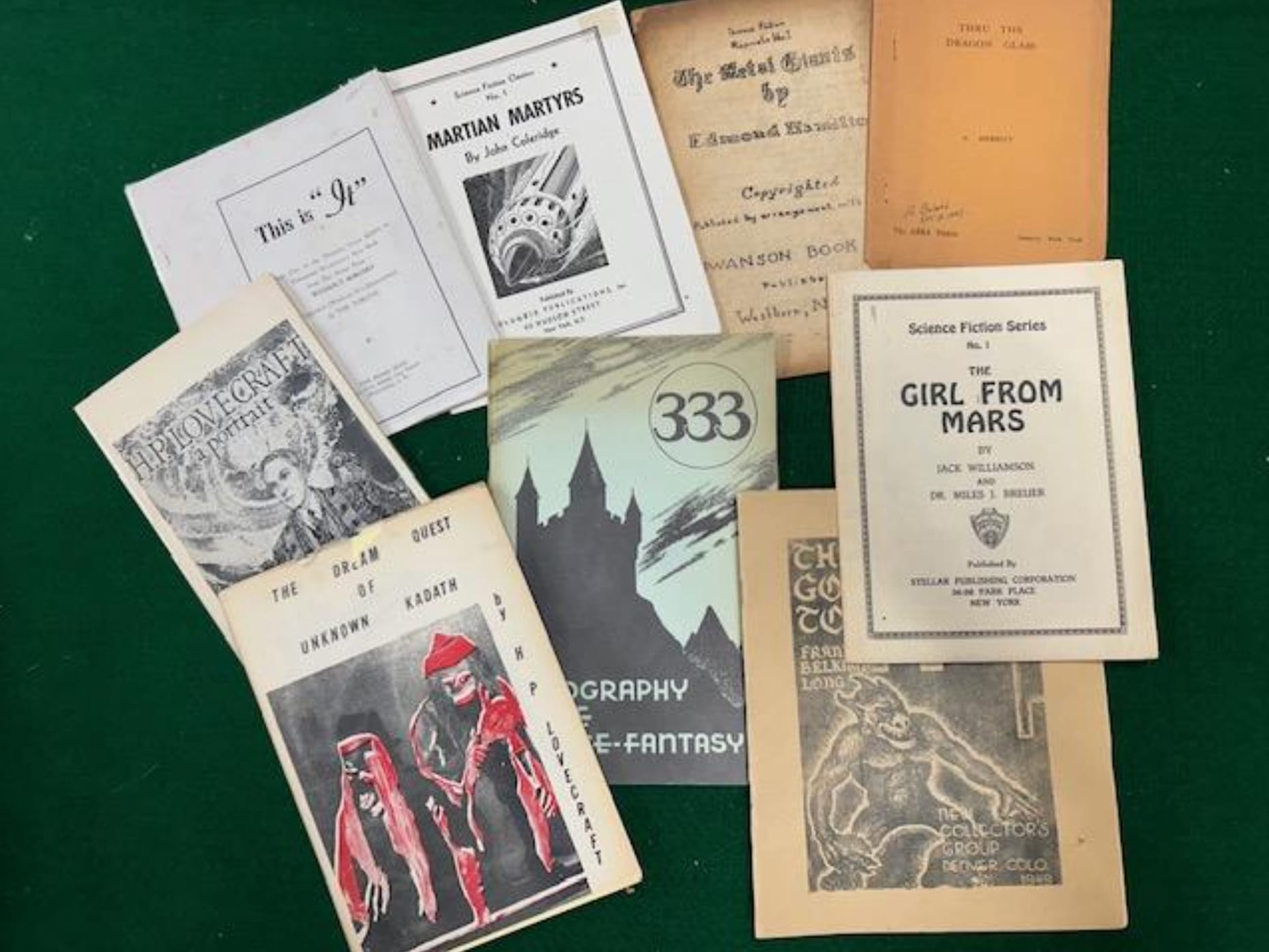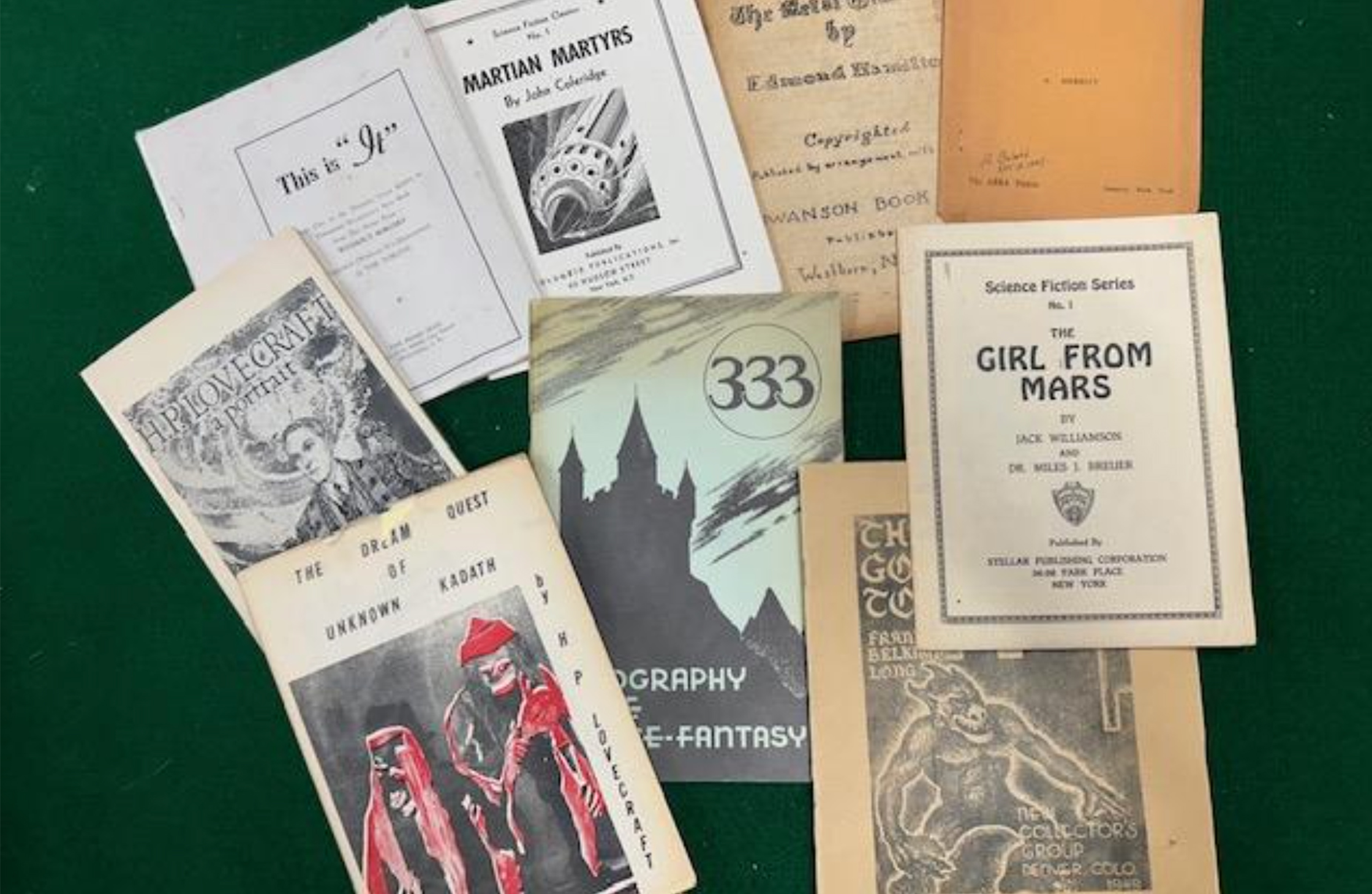Narrated by Matt Davies Voiceover
In the early 1900s, science fiction (called speculative fiction at the time), fantasy, and horror were published in pulps and magazines, not hardback books. That privilege was limited to the likes of Jules Verne, H.G. Wells, H. Rider Haggard, and George Griffith books. At first, science fiction, fantasy, and horror authors could only find small publishers to publish their work in hardback. Over time, mainstream publishers moved into publishing science fiction, fantasy, and horror, and specialty publishing by small houses that they had previously declined. Now, the small specialty press has come back in science fiction, fantasy, and horror publishing; but they tend to produce high-quality, signed, or limited books aimed at collectors and book aficionados, far from their roots. Science fiction, fantasy, and horror started with small press that was dominated by fan publications; this article follows the evolution of publishing the genres.

Early on, a lot of the publications were in the form of chapbooks, typically paper-wrapped books bound with staples or sewn together. This release of small press chapbooks in science fiction, fantasy, and horror began predominantly in the U.S, although chapbooks in general fiction were common in England.
Pulps were a major source of science fiction, fantasy, and horror publications from the 1920s to the 1950s. The publications of Weird Tales (1923) and Amazing Stories (1926) marked the beginning of significant pulps for these genres, replacing chapbooks as the dominant press. The small specialty presses controlled non-periodical science fiction, fantasy, and horror publishing until the 1950s. Many of these were fan-based publishers, including The Council of Four, Atlantic Science Fiction Organization Press, and Peri, which otherwise published a limited number of specialized reference materials but had published little fiction.
The most significant of these specialty publishers is Arkham House. Arkham House was founded by August Derleth and Donal Wandrei in 1939 to publish books by H.P. Lovecraft, eventually expanding to other authors who published in Weird Tales pulps. They published H.P. Lovecraft’s third work, Outsider and Others, and more than 20 others of his books. By 1988, Arkham House had published 190 different books. This includes publishing unbound signatures they purchased from Recluse Press and bound copies of The Shunned House (1959). Apart from Lovecraft, Arkham House earned its place as a historic fantasy and horror publisher through works from other major authors, including Robert E. Howard, Clark Ashton Smith, and August Derleth. Arkham House published many of the seminal works of horror and weird tales. However, Arkham House appears to have closed in 2022. (You can read more about Arkham House in my previous article on tumbleweird.org).
In the 1970s, major publishers began to take the mantle from smaller, fan-based publishers of science fiction, fantasy, and horror. The small publishers had all but disappeared by that time (except for Arkham House). The small publishers who remained tended to be short-lived groups that published science fiction, fantasy, and horror references, indexes, and reprints. However, some fan/convention-related publishers still published original fiction.
Although the mainstream publishers continued to dominate general publications, new science fiction, fantasy, and horror publishers began to reappear in the late 1980s. These have created the mold for the return of small, specialty publishers in the sci-fi, fantasy, and horror genres. A number of new small press publishers have cropped up in the last few years as the market for high-quality publishing by specialty houses expands. Some of these include Suntup, Midworld Press, and Grim Oak. In Britain, there are similar publishers like PS and Cemetery Dance, which published several Stephen King reprints.
References:
Michael Resnick, Official Guide to the Fantastic, House of Collectibles, 1974.
Lloyd Arthur Eshbach, Over My Shoulder, Oswald Train, 1983.
Subterranean Press Bibliography 1995 – 2015, A.S.A.P Publishing, 2017.
Clute, John, Peter Nicholis, The Encyclopedia of Science Fiction, St. Martin’s Press, 1993.
Kohoutek, Karen Joan, Swanson of Dakota, June 24, 2018 (onanunderwood5.blogspot.com)
Steven Woolfolk is the owner of Xenophile Bibliopole & Armorer, Chronopolis Xenophilebooks.com
This article was edited by Asher Bruce.

